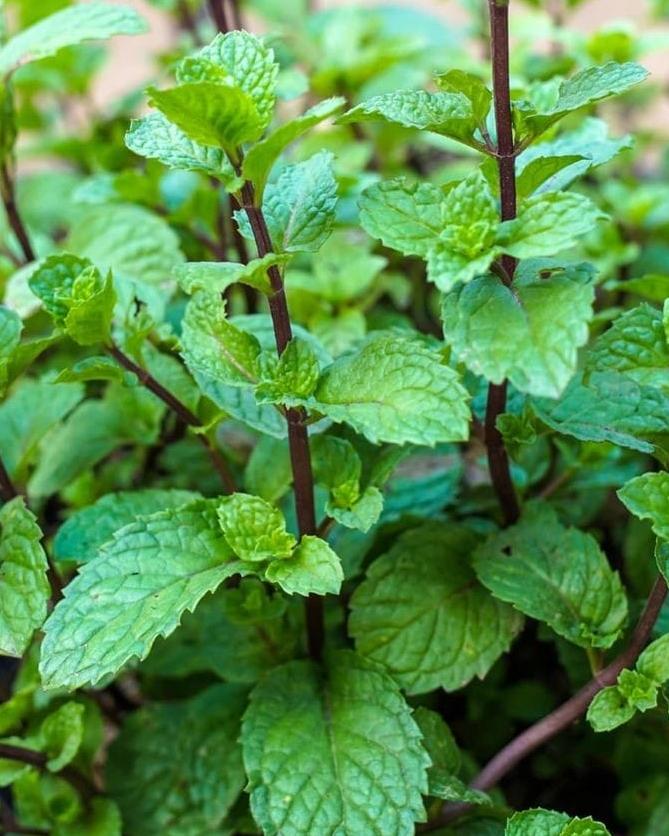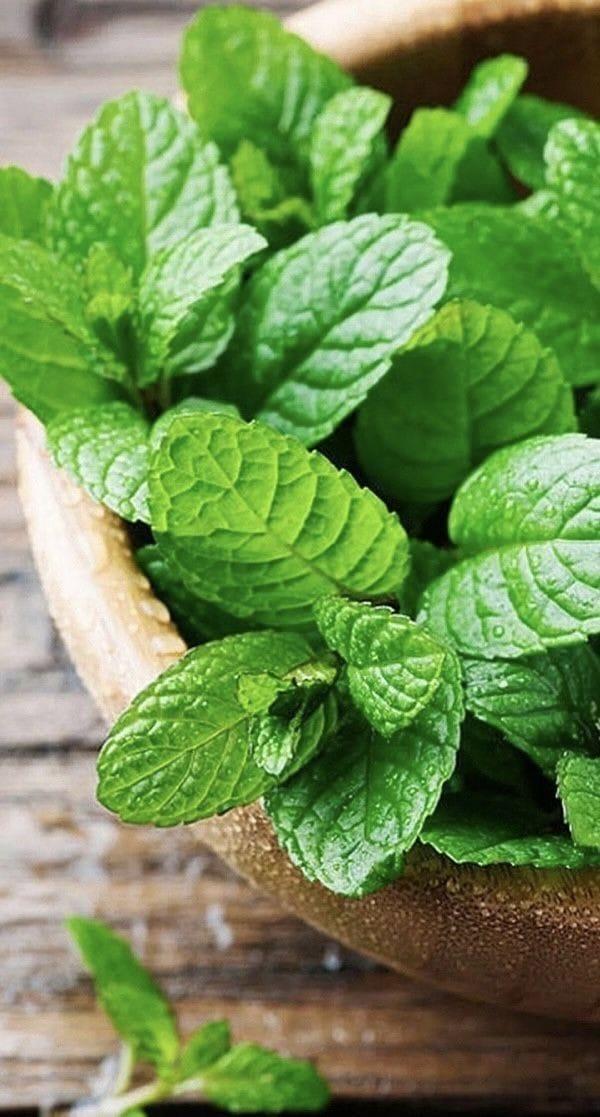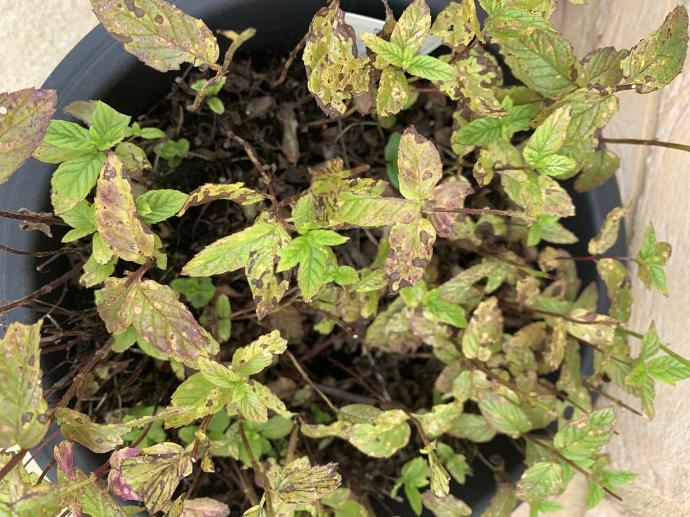spearmint lant
Spearmint (Mentha spicata) is a perennial herb growing 1-3 ft tall, hardy in USDA Zones 3-11, prefers moist, fertile soil, part shade to full sun, high moisture, edible, and has medicinal uses.

Habit
Perennial
Height
0.3-0.5 m
Growth
Fast
Soil
Well-drained, loamy
Shade
Part shade to full sun
Moisture
High
Edible
Yes
Medicinal
Yes
Origin
Europe, Asia
Climatic Condition
Temperate, Subtropical
Temperature (°)
15-30°C
Humidity (%)
60-80%
Potting media
Loamy, compost
Fertilizers
Organic, balanced NPK
Watering
Regular
Plant Weight
50-100 g
Flowering Time
Summer, Fall
Soil Ph level
6.0 - 7.0
Water Ph level
6.5 - 7.0
Soil EC
1-2 dS/m
Yield Per Plant
Herb, culinary
NPK ratio
10:10:10
life Span
Perennial
Health Benefits
Culinary, medicinal
Suggested Grow Media or Potting Mix ?
50% loam, 25% compost, 25% sand
Suggested Fertigation/Fertilizers
Fertilize every 4 weeks with a balanced fertilizer.
Common Diseases and Remedies
Powdery Mildew, Rust, Root Rot, Verticillium Wilt, Mint Aphid Infestation
White powdery coating on leaves,Orange pustules on leaves, Wilting, yellowing leaves, root decay, Wilting, yellowing leaves, vascular discoloration, Yellowing leaves, stunted growth, presence of aphids
Neem oil, Increase air circulation, use compost tea, Improve drainage, Prune affected branches, improve soil health, Introduce beneficial insects.
Systemic fungicides like myclobutanil, Fungicides containing chlorothalonil, Fungicide application, Fungicides with thiophanate-methyl, Insecticidal soap, systemic insecticides
HEALTH BENEFITS
- Digestive Aid:
Spearmint's natural compounds, including menthol, can relax the muscles of the gastrointestinal tract, helping with bloating and other digestive issues.
- Mental Clarity and Stress Relief:
Spearmint tea has been used traditionally to calm the mind and reduce stress, potentially enhancing memory, concentration, and focus.
- Respiratory Support:
Spearmint's anti-inflammatory properties can help relieve sore throats and chest tightness, and it's even used in some asthma medications to ease congestion.
- Immune System Boost:
Packed with antioxidants and antimicrobial properties, spearmint tea can support the immune system in fighting off infections.
- Hormonal Balance:
Some studies suggest spearmint tea may have a positive effect on hormonal balance, particularly in women, and may help with menstrual cramps.
- Weight Loss Support:
Spearmint tea may be a natural boost for weight loss efforts by promoting a feeling of fullness and aiding digestion.
- Oral Health:
Spearmint is often used in oral care products due to its ability to freshen breath and maintain oral hygiene.
- Potential Blood Sugar Management:
Some studies suggest spearmint may help lower blood sugar levels, though more research is needed.

